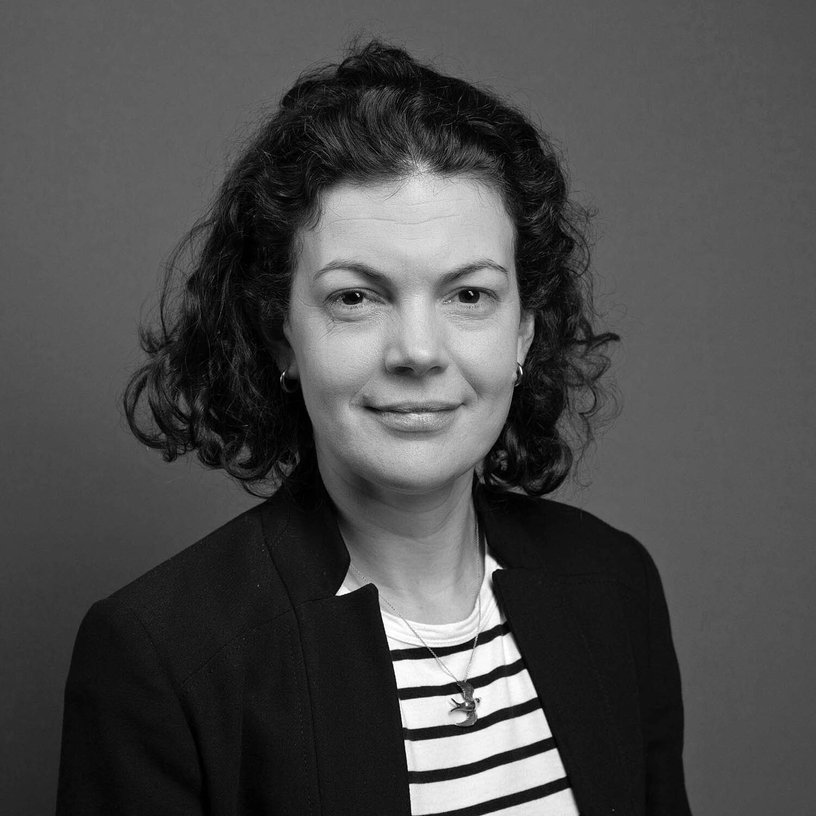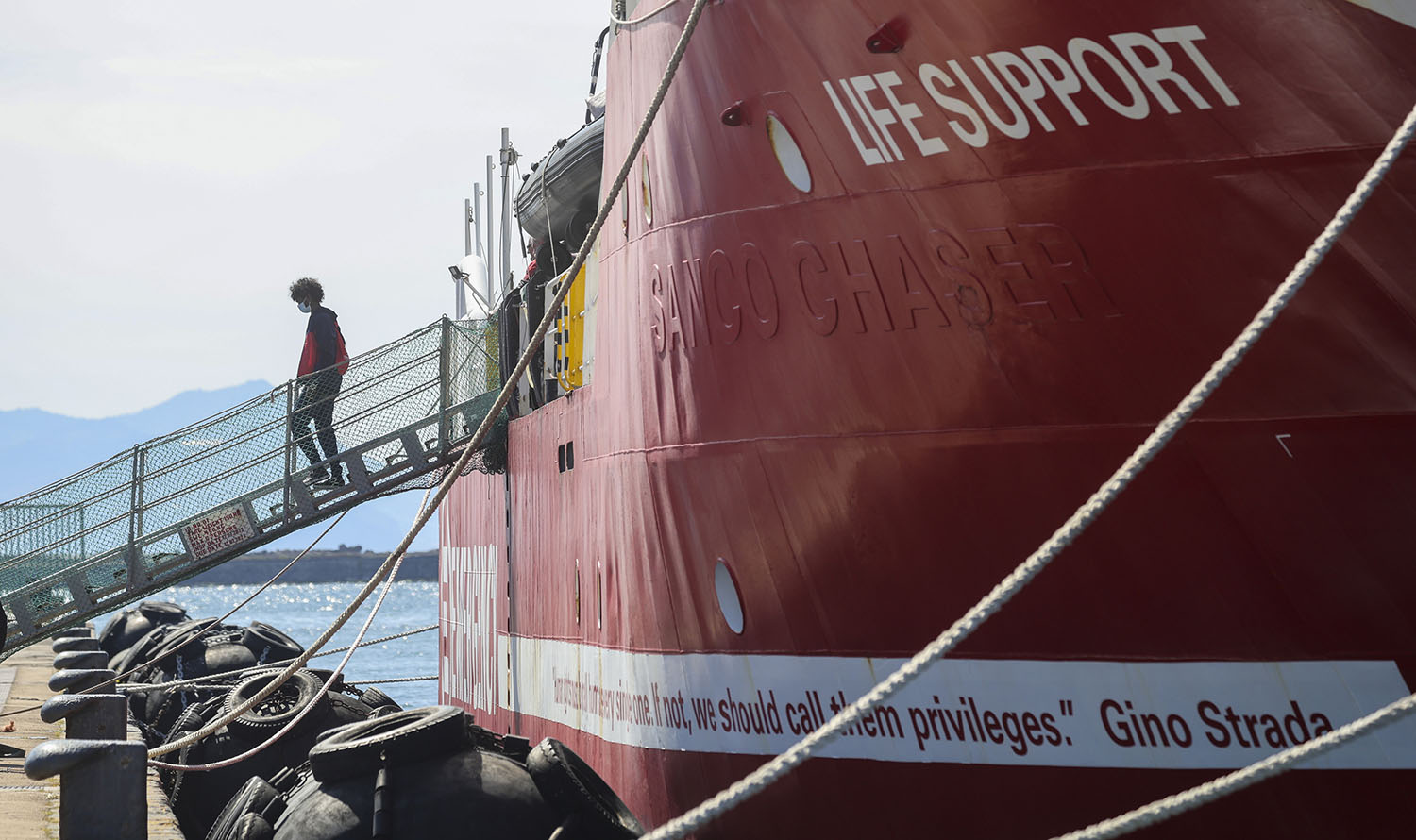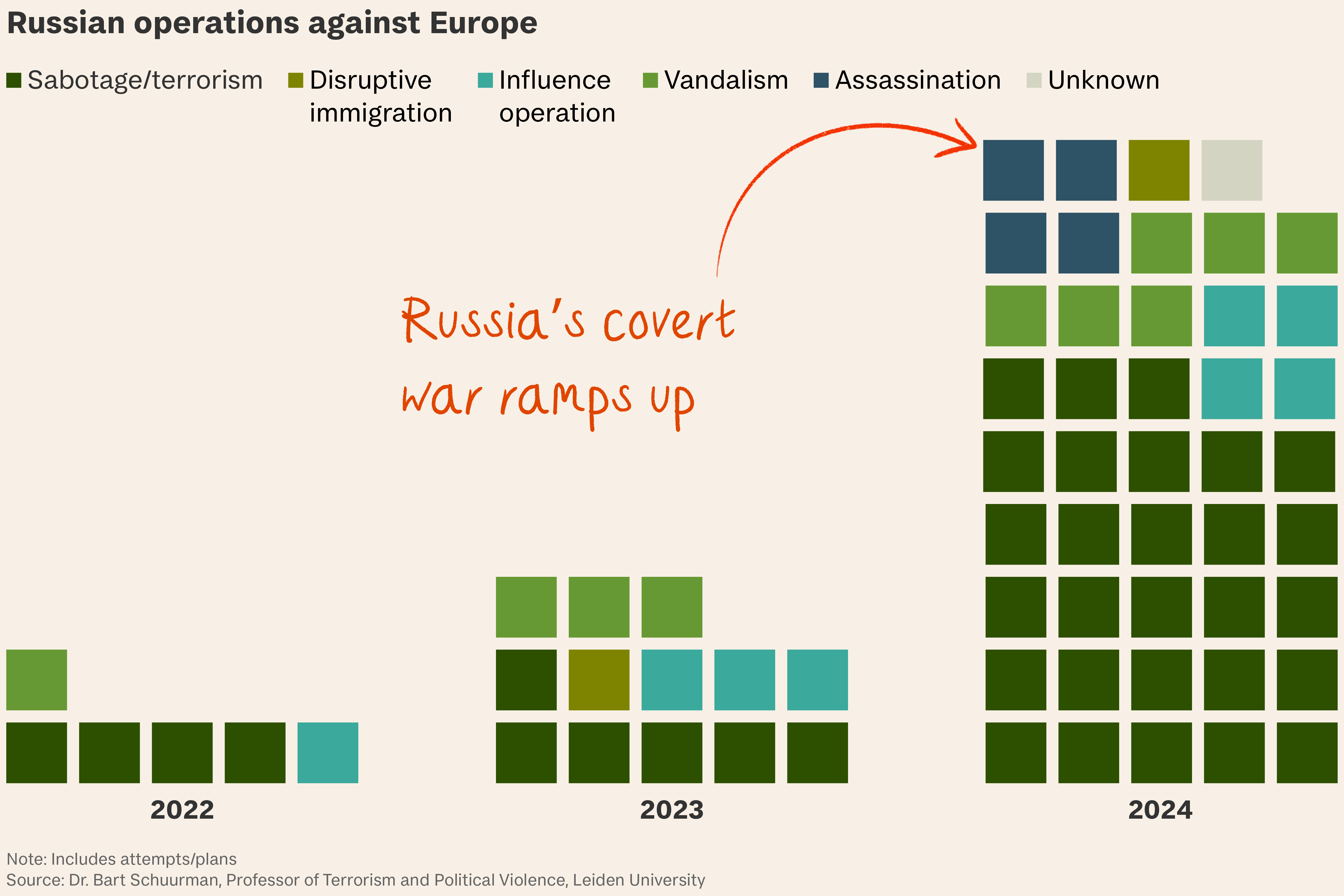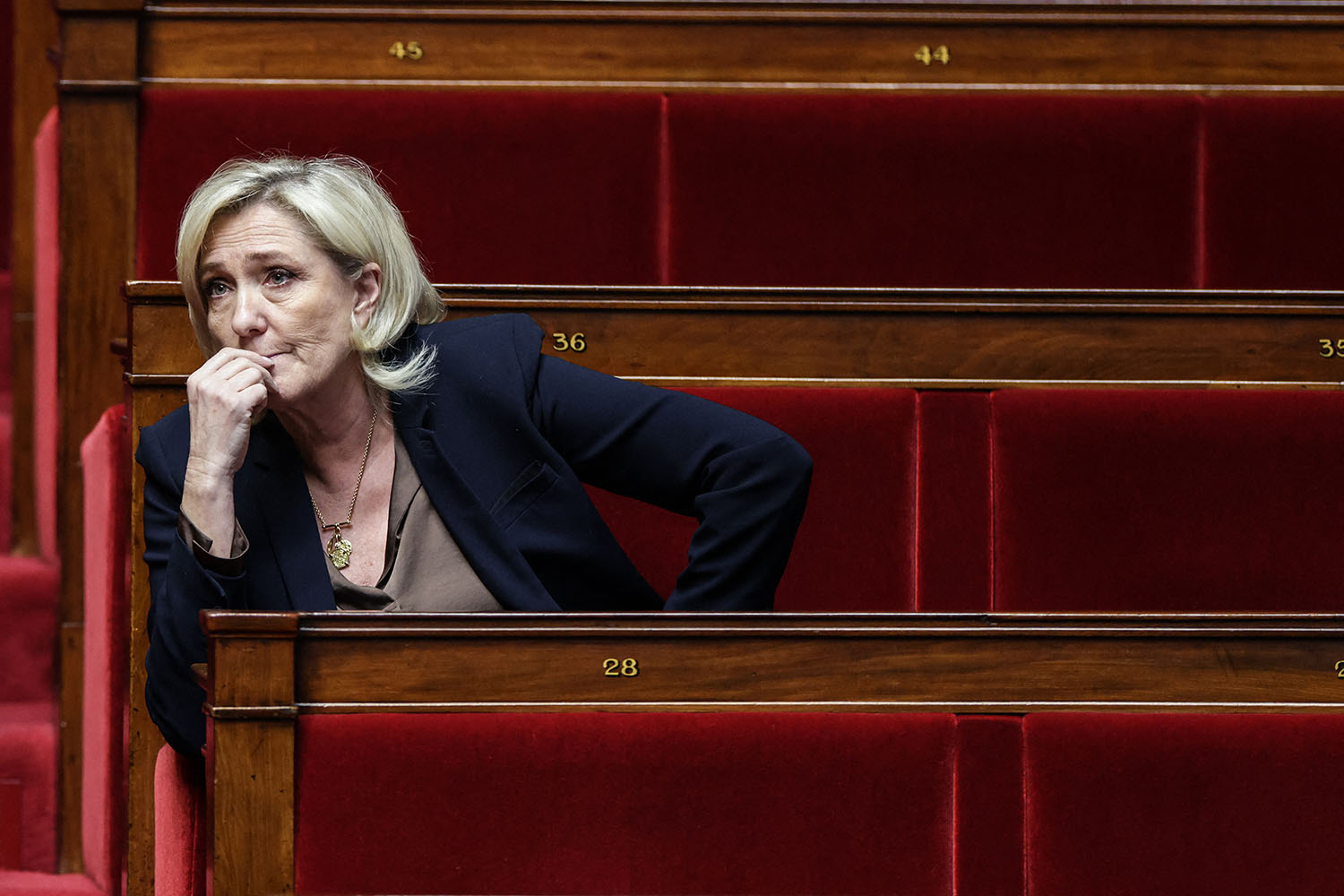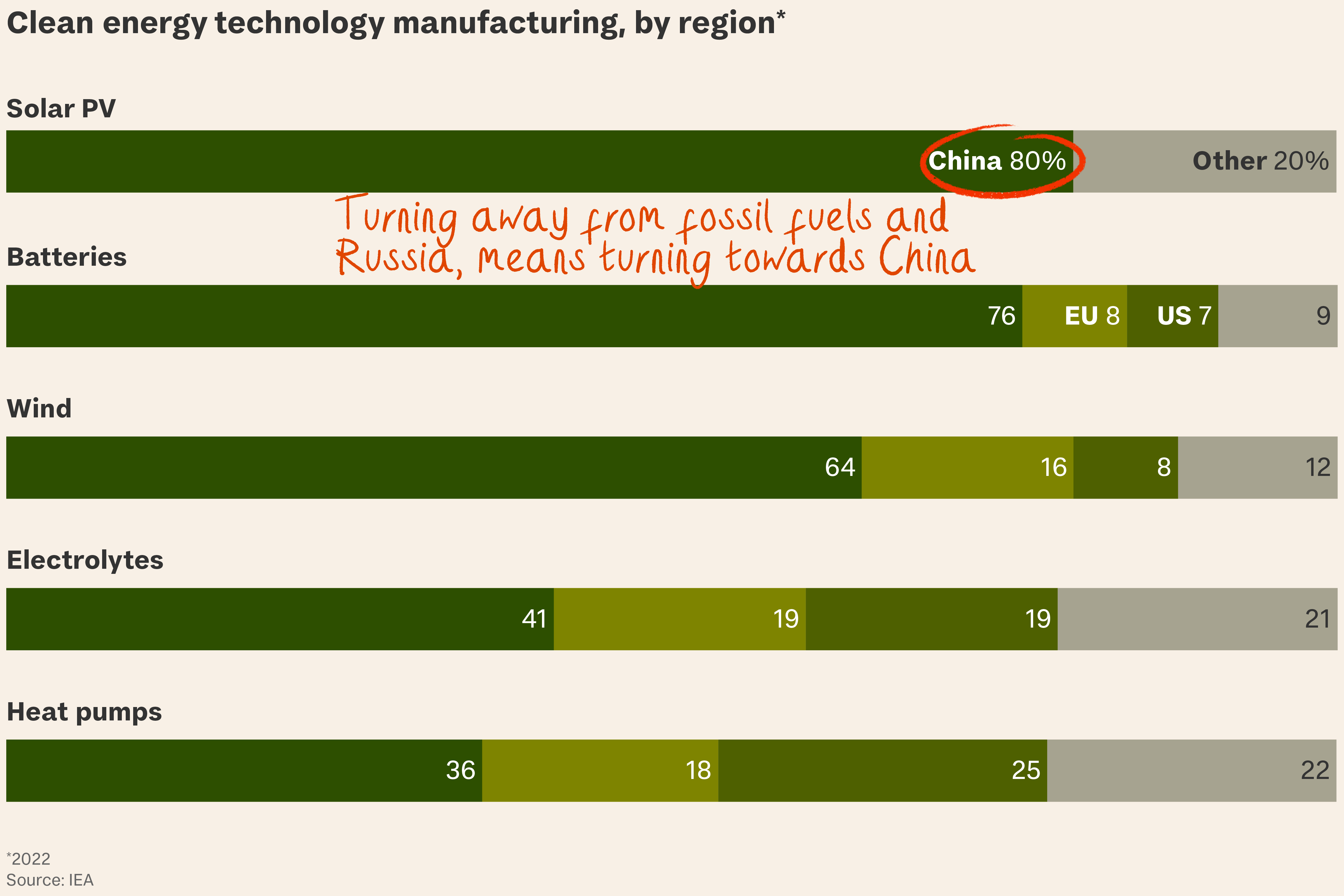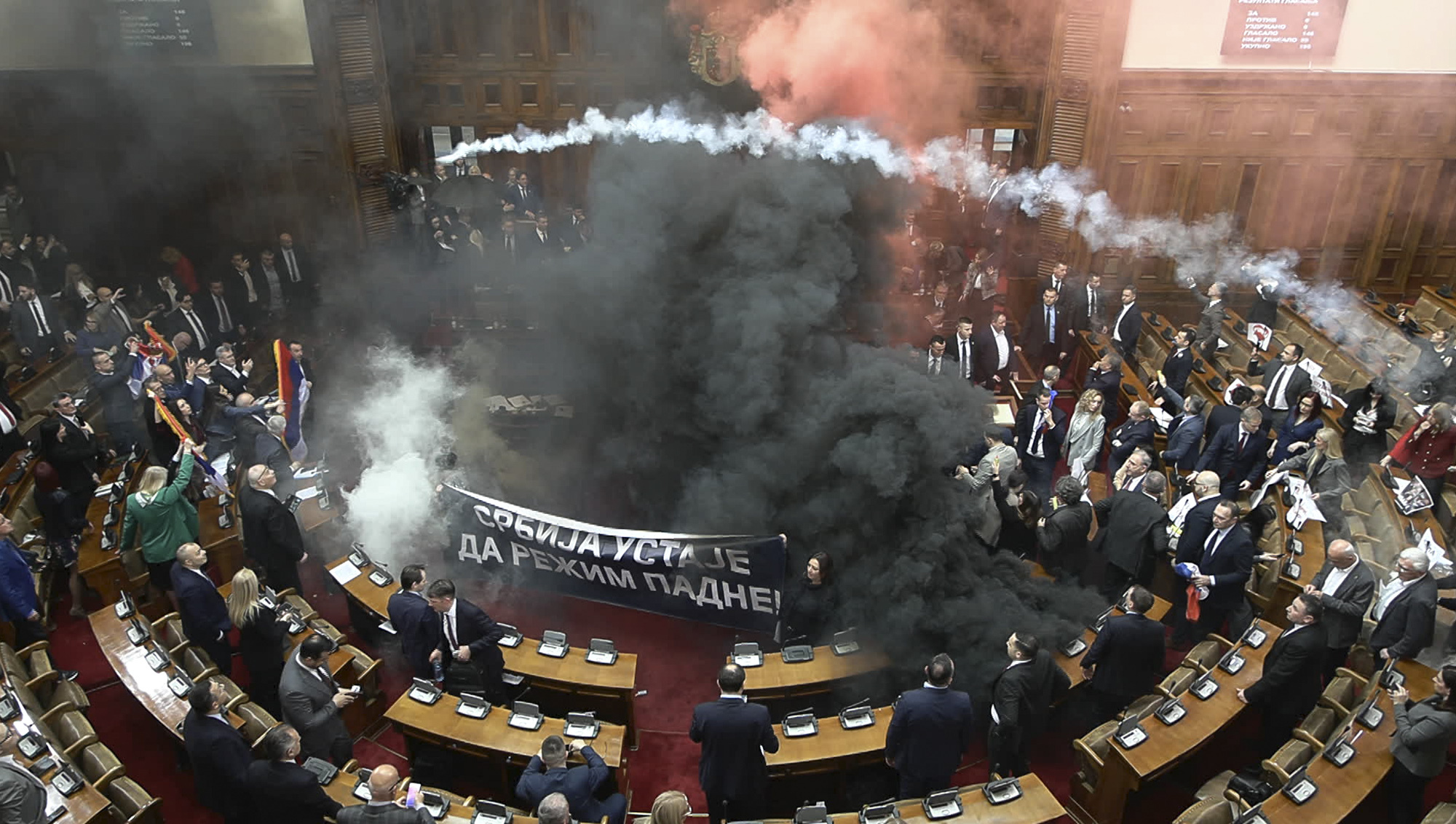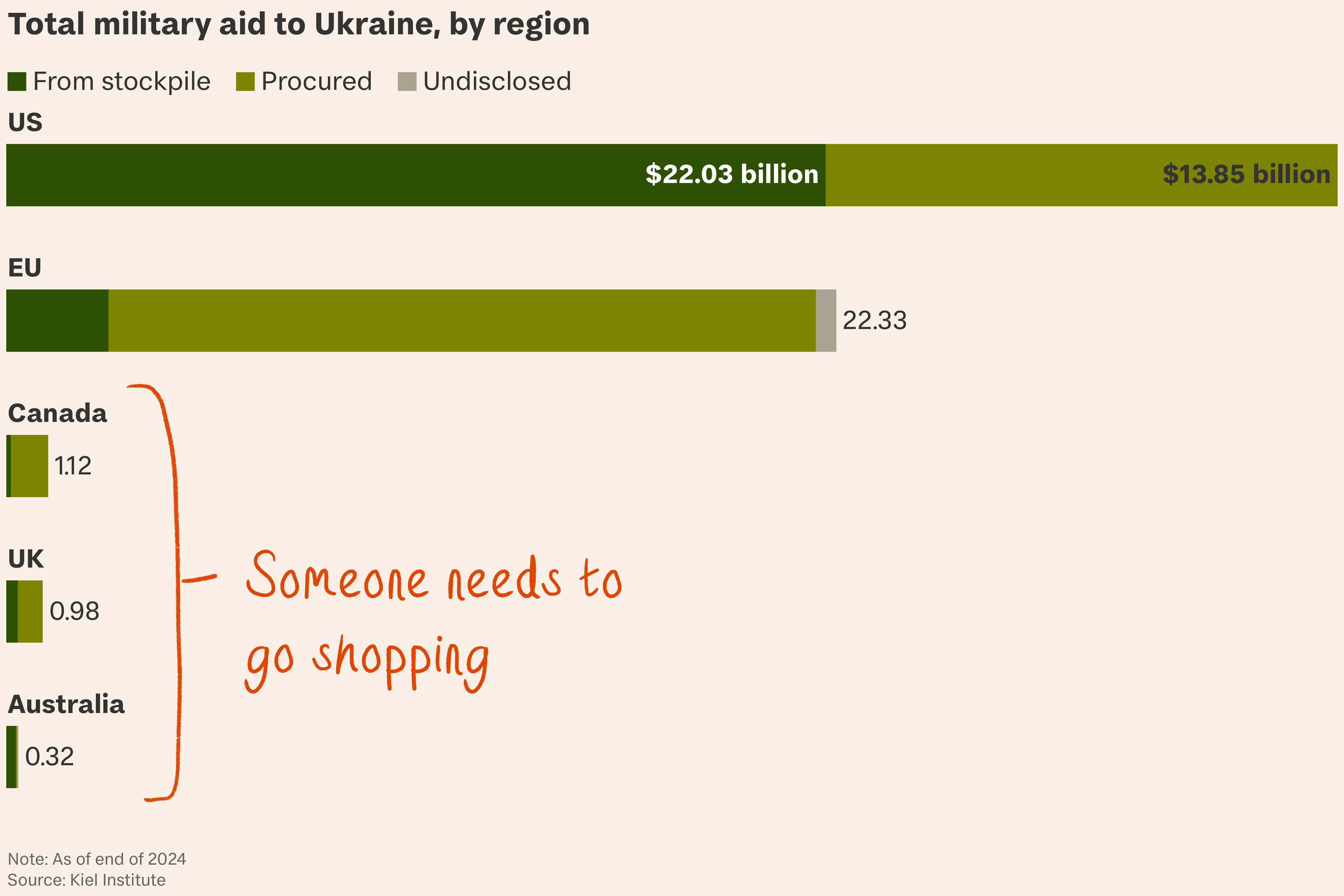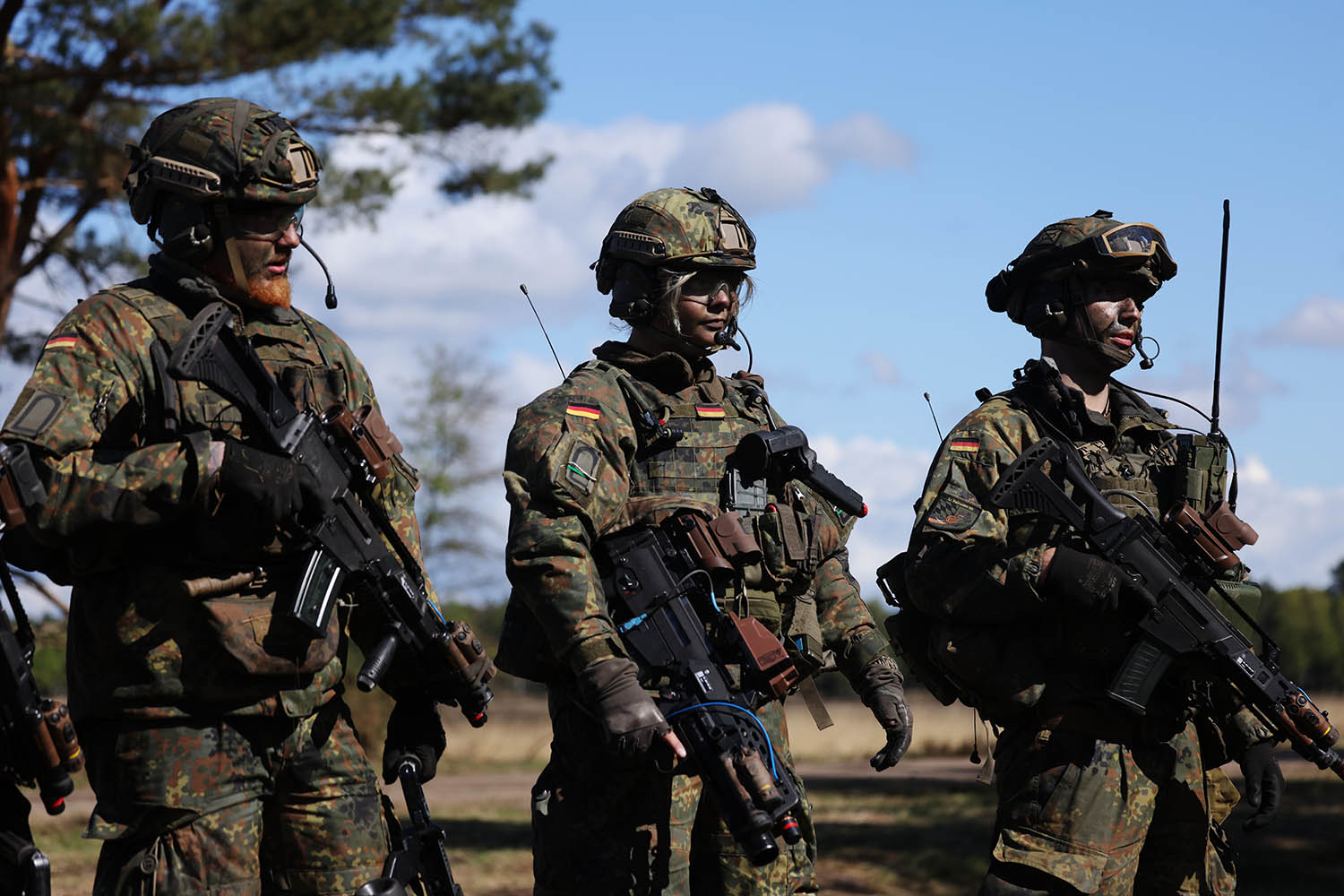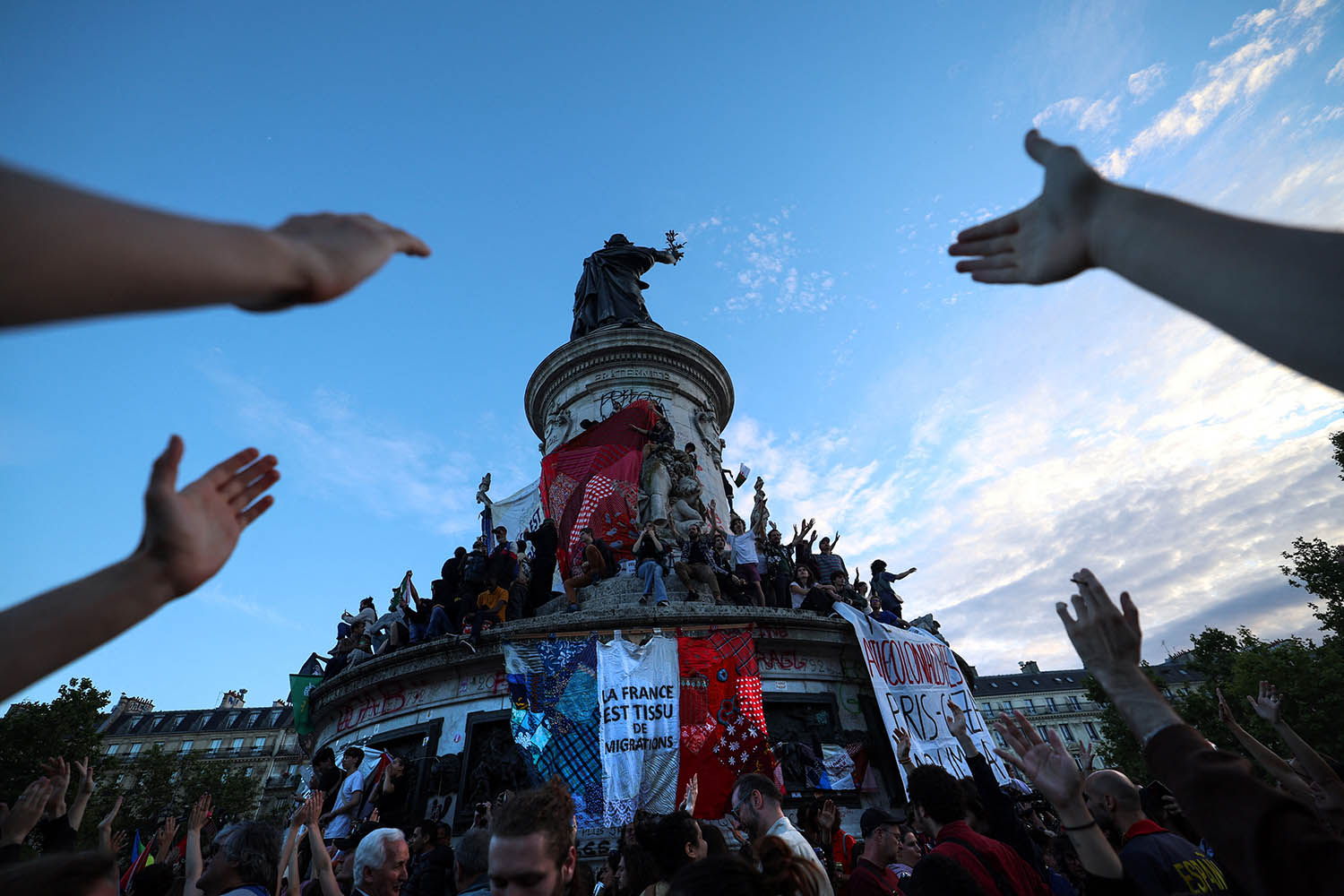
Jubilation at far-right’s defeat may soon give way to political gridlock.
A left-wing alliance formed less than a month ago came first in French parliamentary elections last night, with Marine Le Pen’s far-right party in third place.
So what? That noise is a sigh of relief stretching from Brussels to Kyiv.
- The result thumps expectations that Le Pen’s National Rally (RN), a eurosceptic, anti-immigration party, would be the largest bloc in the French parliament.
- It means Macron won’t be forced into a power-sharing government with the RN’s 28 year-old Jordan Bardella.
- But it still leaves France heading towards a dangerously unstable parliament.
The strategy. After the RN secured an unprecedented 33.3 per cent of the vote in the first round on 30 June, other parties formed a “republican front” to counter it in as many districts as possible.
- More than 200 centre and left candidates pulled out ahead of the run-off to avoid splitting the anti-RN vote.
- The goal was to keep the RN from winning the 289 seats needed to form a majority in the 577-seat parliament.
- It’s a technique that has worked before – including when voters defeated Le Pen’s father, Jean-Marie, in a presidential election in 2002.
The result. It worked again. Voters turned out in their highest numbers since 1981 and delivered:
- 182 seats for the four-party leftist New Popular Front (NFP);
- 168 seats for Emmanuel Macron’s centrist Ensemble alliance;
- 143 seats for the RN and its allies; and
- 60 seats for the centre-right Les Républicains.
“In Paris enthusiasm, in Moscow disappointment, in Kyiv relief,” said Donald Tusk, the Polish prime minister. “Enough to be happy in Warsaw.”
The problem. Macron pitched the snap election as a simple question: Who should govern France? The country has turned away from the far-right, but instead faces a hung parliament, with no alliance winning enough seats to secure a majority and form a government.
Macron cannot call elections again until June 2025: in the meantime the options facing the EU’s second-largest economy are: forming a broad coalition government between parties who have no tradition of working together, or turning to a technocratic government à la Mario Draghi in Italy. Macron’s current prime minister Gabriel Attal will resign today but continue as caretaker, as Paris prepares to host the Olympic Games.
“France has today rejected government by the far-right,” says Mujtaba Rahman of the Eurasia Group consultancy, “but looks likely to face months of political chaos with a blocked parliament.”
The left. The NFP, launched on 10 June, is dominated by Jean-Luc Mélenchon’s far-left France Unbowed (LFI) but includes the more moderate Socialists, Greens and Communists.
Mélenchon was the first to react to the results last night, calling on Macron to invite the NFP to govern. Its programme includes:
- reversing Macron’s controversial reforms that raised the pension age from 62 to 64;
- raising the minimum wage by 13 per cent;
- freezing energy prices; and
- bringing back a wealth tax.
The NFP has also pledged to “immediately recognise” a Palestinian state. Mélenchon has been accused of downplaying anti-semitism in France, after describing it as “residual” in a blog post on 2 June.
One official suggested last night that PM candidates could include socialist leader Olivier Faure and the Greens’ Marine Tondelier – but not Mélenchon. Even before the election result, the alliance wasn’t able to put forward a single candidate, suggesting that negotiations wouldn’t be straightforward.
What’s more. Le Pen insisted that far-right victory in France “has been merely delayed”. Her party secured 89 seats in 2022; that number has now almost doubled. The presidential election is due in 2027.
